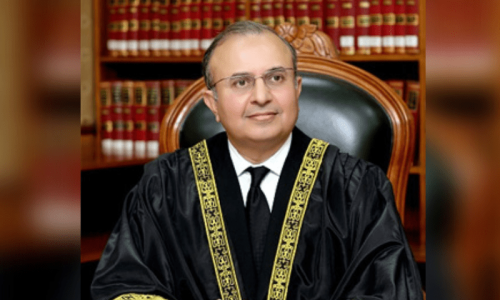BLACK Lives Matter has made clear to white elites around the world just how much anger there is about the legacy of colonialism. But the rage felt by the protesters is hardly new. After all, those who participated in the 1857 First War of Indian Independence — known by the British as the Indian Mutiny — risked their lives opposing colonialism. In many Asian and African countries, the high hopes that came with independence in the post-World War II period was the mirror image of the grinding despair that had characterised life under a colonial master.
The current generation of anti-colonial activists are still sufficiently disadvantaged to find it necessary to give reminders of what colonialism was like. They know that many in the West still don’t fully appreciate what colonialism entailed from the point of view of the colonised. And, they say, most Westerners fail to understand that the wealth their countries enjoy flows not just from their hard work and technological excellence but also from the resources that were ruthlessly extracted from the rest of the world over a period of some centuries.
One of the more telling facts to emerge in the UK as a result of Black Lives Matter is just how many members of the British House of Lords are the descendants of people who made their money from slaving. These are hereditary members of the upper house, still wielding power as a result of their forbears’ rapacious conduct — a clear a sign as any of how the colonial past is hard wired into the present British establishment.
As for the situation today, the protesters say, how many white Europeans really appreciate the hidden racial biases that even well-motivated liberals from time to time exhibit? How many white people are sensitive to the so-called micro-aggressions that generally involve making invalid assumptions about non-whites?
Post-colonial uncertainties are not restricted to the once-colonised.
And yet some of those who come from formerly colonised countries do not share the anger of Black Lives Matter activists. Although it is a remark heard less frequently than it was 20 years ago, there are still Pakistanis who will say that the place was better run under the British. More often than not, such a remark is followed up with the observation that Pakistanis are not ready for democracy and that it will be several generations before they are. None of this is to say that the people who hold such views don’t cherish the independence gained in 1947. It’s just that they don’t believe the opportunities that seemed so bright back then have actually been used.
You may be thinking that the people who hold such views are decreasingly relevant. Some are the descendants of those who fawned to British colonial authorities — part of the decreasingly important feudal class. Other are just elderly — looking back through rose-tinted glasses that airbrush out the negative aspects of the colonial experience.
And we should not think that post-colonial uncertainties are restricted to the once-colonised. Many Western aid workers who work in developing countries also have conflicting impulses about these matters. On the face of it, most aid workers are liberal idealists dedicated to combating the gross inequalities that cause so much despair around the world. And yet, when you see how they conduct themselves on the ground, many aid organisations seem to have a hint of old colonial attitudes baked into their outlook. Theoretically, aid organisations are meant to support governments in the developing world. In reality, they set their own agendas and impose systems that are quite different to those which local officials would use.
But it is too easy to identify Westerners and elderly Pakistanis alone as the people exhibiting traces of a colonial mindset. Many young Pakistanis also have ambivalent attitudes towards the powers that once colonised their lands. They simultaneously reject white privilege, Western arrogance and double standards whilst also longing for the good governance and prosperity that those living in the West enjoy. In many cases, even the most nationalistic Pakistanis would accept an American passport if it was offered to them
And as any Western visitor to Pakistan can tell you, many Pakistanis also conduct themselves in a way that suggests the colonial legacy is alive and well. White tourists in Pakistan — and dare I say, social media commentators too — are treated like royals. Journalists are invited into the best homes and the humblest ones, have their work facilitated by officials and police officers and get access to powerful politicians. As someone who has benefited from this hospitality for decades, it would be churlish to be anything other than grateful. But I can’t help wondering how Pakistani journalists feel about it.
In many other developing countries — including India — Westerners often get much shorter shrift than they do in Pakistan. So traces of colonialism live on, and not just in the colonisers, but in Pakistan, amongst the once-colonised too.
The writer is a British journalist. His book The Bhutto Dynasty will be published later this year.
Published in Dawn, July 7th, 2020









































